Fresh fruit is an ideal treat for your pet if administered in good quantity. A few bites should be able to satisfy your cute guinea pig. You also need to wash the fruits thoroughly before giving them to the pet. In this article, we are going to talk about apricots as possible food for the guinea pig.
So, can guinea pigs eat apricots? Guinea pigs can eat apricots. Apricots are safe for guinea pigs to eat and they are also richly packed with nutrients. As much as they are nutritious, they are also quite sugary which isn’t so good for the guinea pigs.
In this article, you will learn about the health benefits, nutrition facts, and risks of apricots to guinea pigs.
Table of Content
Are Apricots Good for Guinea Pigs? | Health Benefits
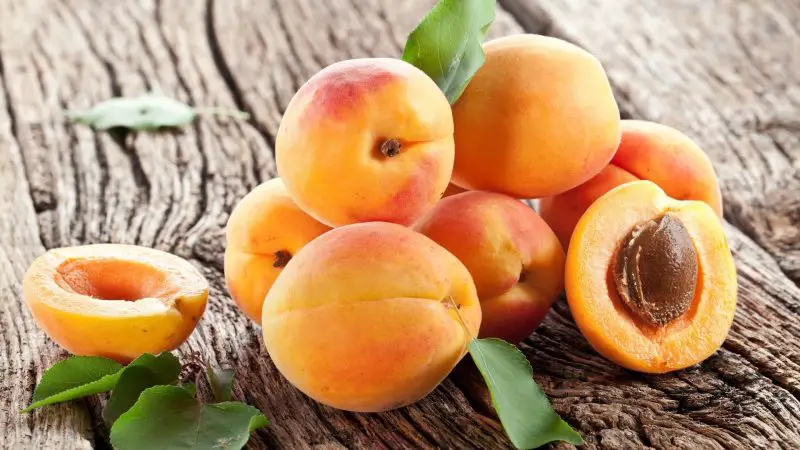
Apricots are known to have numerous benefits for guinea pigs. They are among the best fruits that can be given to guinea pigs in moderation. These are the benefits:
- Keeps the immune system steady. Apricots have been proven to improve the immunity of guinea pigs to a great extent. Therefore, if you want to improve the health of your guinea pig, you can consider feeding it apricots.
- A source of dietary fiber. Fiber helps in digestion and eases any upsets that may be present in the stomach of the guinea pig. It further cleans the intestines to prevent any presence of disease-causing micro-organisms.
- Helps to get rid of toxins and free radicals. The antioxidants that are present in the apricot significantly contribute to the removal of toxins inside the pet’s body.
- Increases metabolism. Since it is rich in dietary fiber, the apricot helps to improve the digestive system.
- Has little calories. Excess calories can lead to an excessive increase in weight, among other things. By eating apricots, you reduce the intake of excess calories in the body of your pet. This will help to maintain its weight and health.
- Helps to reduce cholesterol in the body. Cholesterol is a harmful chemical that if not controlled, can affect the health of your pet. Luckily, apricots can do the job of managing for you. This way, your pet will not have to suffer from high cholesterol levels.
- Helps in the formation of healthy bones and teeth. Apricots are rich in calcium and potassium which helps to create bones and develop them.
- Helps to heal and repair damaged tissues. This is another importance of calcium and potassium in the body of a guinea pig.
Nutrition Facts of Apricots
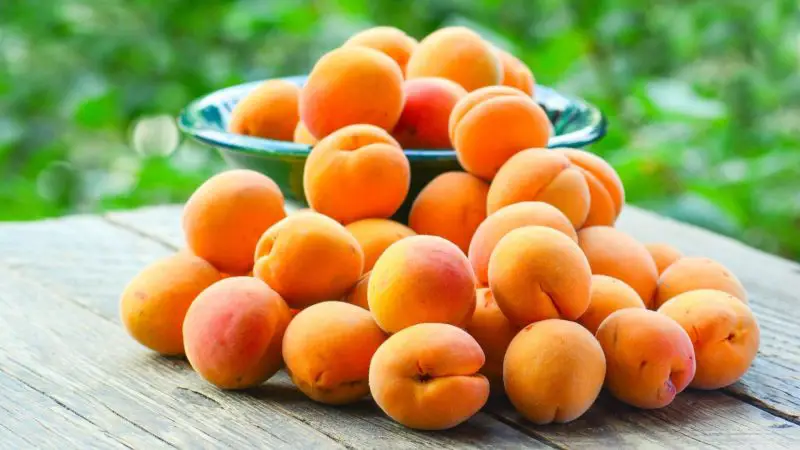
Nutritional content reflects the benefits of any food. In this case, these are some of the nutritional facts about apricots:
- Apricots are rich in dietary fiber which helps in digestion and prevention of stomach aches and disorders. The fiber is also ideal for cleaning the intestines.
- Vitamin A, otherwise known as retinol, helps to enhance the immune system and boosting sight/vision.
- Antioxidants are very vital elements in the body of an animal. In a guinea pig’s case, they help to reduce the presence of free radicals and also to remove toxins from the body.
- Apricots are rich in iron which is great for the blood and health of the guinea pig. This mineral helps in the formation and development of bones. It also helps in the healing of tissues.
Are Apricots Bad for Guinea Pigs? | Possible Risks
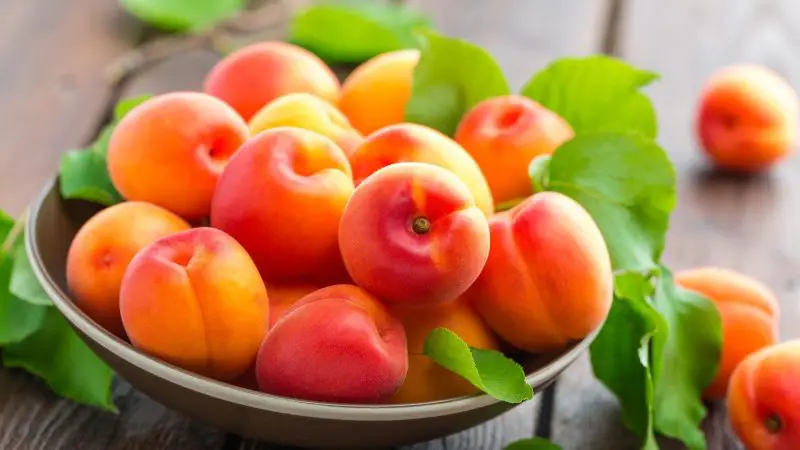
Apricots are generally safe for guinea pigs. They are healthy treats that you can give your pet once in a while. The main idea is that you feed the guinea pig apricots once or twice a week. This is because of the following three reasons:
- Too much sugar. Apricots tend to have too much sugar in them which may affect the health of the guinea pig. This can lead to excessive weight loss and sometimes alter the guinea pig’s health drastically.
- Potassium works well with calcium in the guinea pig’s body but can also be harmful when the intake is too much. Therefore, you should try and control how many pellets of apricot your pet takes in a week.
- Though few, there are known cases of allergies from apricots. Specifically, guinea pigs are known to be allergic to the fruit. This can present itself with vomiting or diarrhea. Since guinea pigs don’t speak, you will need to be observant of their every move.
You need to check their reactions carefully and assist where needed. In case of any allergies, stop administering the apricots immediately and feed the pet other foods. If it persists, you can visit a veterinary doctor for further assistance.
As you can see, the above risks can be managed by either reducing or stopping intake. They are not critical risks that can interfere with your pet’s life to a significant level.
All you need to do is to be extra careful and responsive. If you do this, you will always notice anything different from your guinea pig.
Related Questions
What Will Happen If I Feed My Guinea Pig Too Many Apricots at One Time?
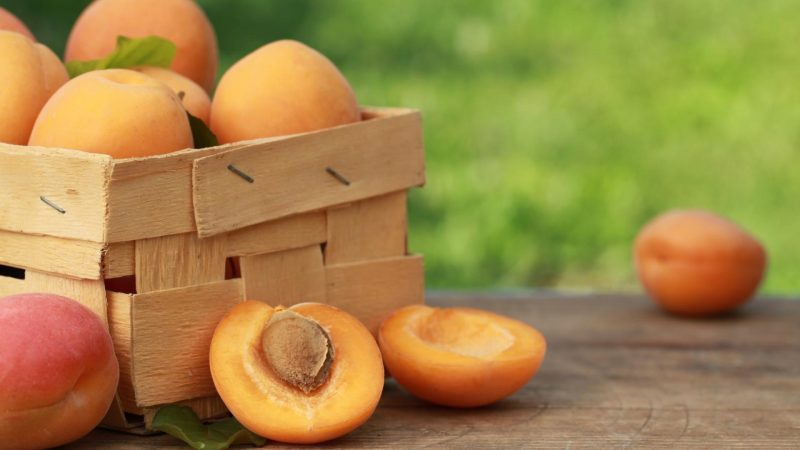
Sincerely speaking, not much will happen when you feed your guinea pig too many apricots at one serving. The worst that can happen is diarrhea and vomiting in case the reaction has gotten high. Otherwise, the pet would bloat and be fine after a while.
The permitted number is one to two pellets in a week as a standard serving. This will help to regulate the intake of the fruit at optimal levels. Balancing is important, and this is something that you need to learn as a virtue.
Should I Feed My Guinea Pig Apricots That Have Not Ripened?
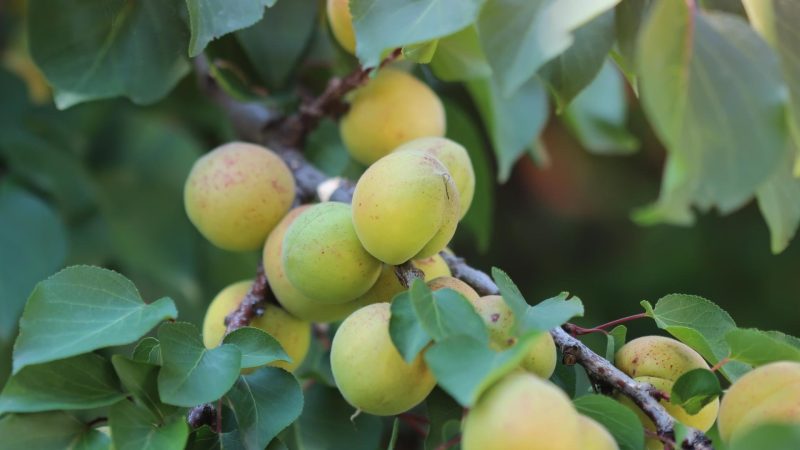
Guinea pigs are animals and they deserve to eat only what is tasty and ready to be consumed. They may eat unripe apricots, but you need to ask yourself whether they’ll like them or not or whether the unripe apricots will harm them or not.
Guinea pigs, in particular, are susceptible animals. This is why they need extra care and attention. Do not feed the pets any fruit that has not yet ripened. This will not only be tasteless for them but it can put your cute guinea pig at risk of stomach problems.
This can further lead to diarrhea and vomiting which can be prevented by merely giving the pet ripe fruits. Don’t assume anything nor leave anything to chance when dealing with delicate creatures.
Quick Facts on Apricots
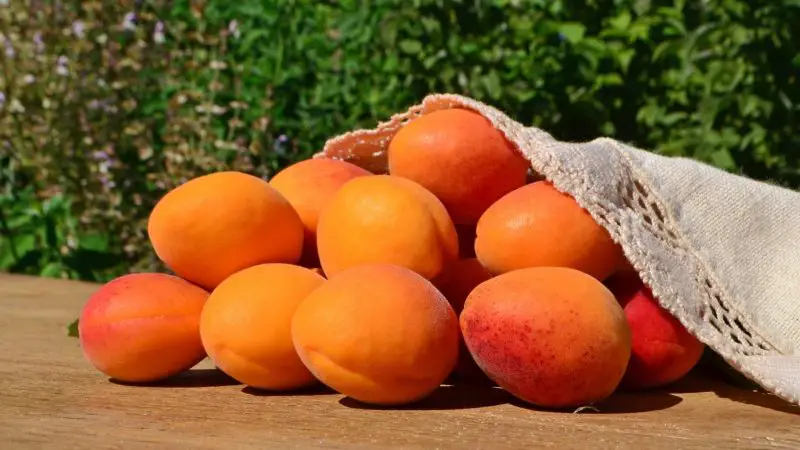
The facts below are probably some detail you are not aware of regarding apricots:
- The apricot fruit has a small tree that averagely grows between 26 to 39 feet in length.
- The fruit is said to originate from either China, Armenia or India, with no unanimous agreement on the exact country of origin.
- It is believed that Alexander the Great was responsible for introducing the fruit to Greece.
- Apricots are from the rose family of plants.
- In the United States of America, there is a day named after apricots (National Apricot Day) celebrated on the 9th of January every year.
- An average apricot tree can produce fruits for a time frame of 20-25 years.
- When you refrigerate an apricot, you dampen the ripening process of the fruit. This is the reason they are stored at room temp until they are ripe.
- Apricots don’t have any cholesterol in them. They also lack saturated fats and sodium.
We have also made a full list of foods that guinea pigs can and can’t eat (150+ Types of Foods). Be sure to also check our recommended products page for everything you will ever need to assure a happy life for your guinea pigs. Hope this information was helpful and you have found the answer you were looking for.
List of Sources
Vitamin C Requirements of the Guinea-Pig
Nutrient Requirements of Laboratory Animals: Fourth Revised
Diet Composition and Mineral Balance in Guinea Pigs
Dietary Requirements of the Guinea Pig With Reference to the Need for a Special Factor
